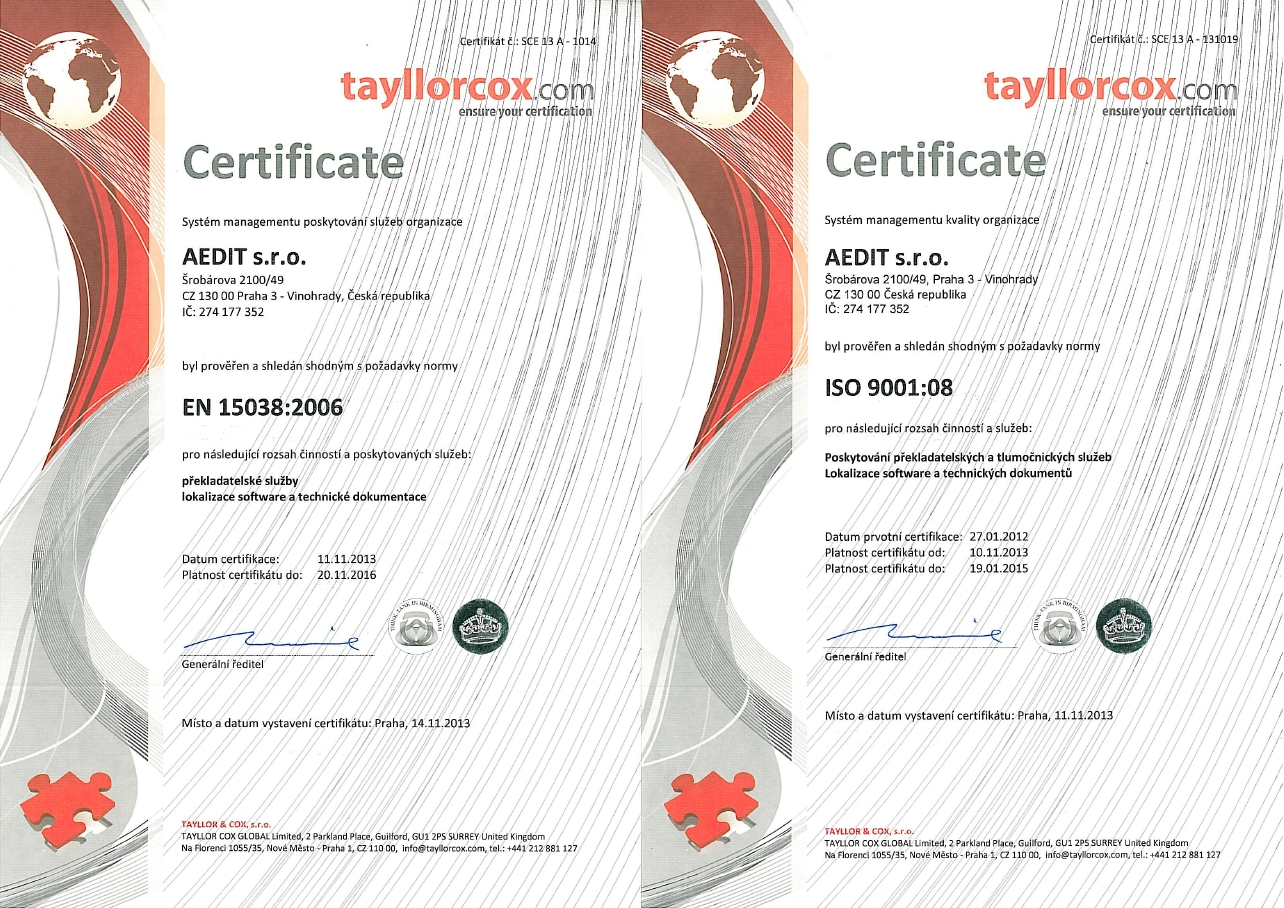We offer two kinds of discounts, the first of which is a volume discount. We will always offer a better rate for large volumes of text. We also offer repetition discounts, which are mainly available where translation (CAT) tools are employed – but even without such software we always take account of cases where some of the text just needs to be copied and reviewed.
It is important to understand some essential terms
- price per standard page of translation
A standard page is taken as 1800 characters including spaces. This is the most commonly applied measurement. It is used for normal text, where there is no need to employ special linguistic or software tools. The final price is calculated from the length of the translated, target text, and may differ. Generally, a translation will be within 10% of the size of the original – but the nature of the structure of some languages (e.g. German or French) may mean that they are up to 30% longer. It is important to remember that the translator basically has to create the text, and therefore deserves recompense that recognises the full extent of their work.
- price per physical page
This applies to the translation or other processing of pages irrespective of the amount of text that appears on them. For verified court translations we will charge for 1 physical page if the text does not exceed 1800 characters including spaces. This measurement is used primarily for judicial translations and complementary services.
- price per source word
This applies where CAT tools are used, or for specific projects, as well as in cases where it is necessary to fix the cost in advance. The final price is established before translation begins, and will not change.
We will provide you with a cost calculation on request, and on receipt of your agreement confirm your order in writing. Prices are generally shown without VAT; as AEDIT is a VAT registered company, VAT at the current rate (21%) should be added.
We always try, within our standard pricing, to send out translations in a form that the customer can use straight away. Where this involves basic formats like those for MS Office, OpenOffice, HTML, XML and so on, we can usually preserve the formatting of the original without difficulty. Where the source material is more complex or text cannot be edited, we will advise the customer in advance as to how the translation will be delivered. For uneditable PDF files, for example, where the text cannot even be extracted using optical character recognition, we will deliver the translation as a new MS Word document preserving the structure of the original.
We can process data in many other forms to meet our customers’ wishes too (e.g. Adobe Acrobat, Adobe PageMaker, Adobe FrameMaker, Adobe Illustrator, InDesign, AutoCAD, CorelDRAW etc.). If the time required is not excessive, we aim to do so within the framework of our standard pricing. Where the work is very complicated, we have a range of specialised software tools at our disposal and collaborate with professional graphics studios, and so can handle almost any graphical format; the costs for the extra work involved will of course always be agreed in advance.
Normally we would expect to complete 6-8 standard pages (1800 characters including spaces) per working day, not counting the days of receipt and delivery. If you send us a 6 page translation on Monday, for example, we will return the translation to you on Wednesday. For smaller projects, we aim to deliver by the next day wherever possible.
Should your deadlines be shorter, we will need to check what’s possible; prices will then be determined depending on the specific resources available. We try to limit express surcharges for long-term clients and large projects. In the case of the latter, we will also try to divide the work between multiple translators (assuming that the structure of the source text permits); this reduces the pressure on individual translators, but on the other hand is more demanding in terms of ensuring consistency through the text and the correct terminology. Nevertheless, it is less expensive than an express translation from a single translator.
Yes, we do. Automated translations must, before being used, undergo review by a human being (this service is known as MTPE – Machine Translation Post-Editing). We can arrange both automated translation and the subsequent post-editing. This is particularly advantageous for very large texts where the quality of the end product is not paramount. It is still the case that, if you need a high quality translation, it needs to be undertaken from the start by an experienced translator. At the same time, however, this service is appropriate for several types of text that don’t require creative processing. You will certainly appreciate the low cost of this service and the speed with which you receive a text in the target language that can be used for informative purposes without embarrassing you.
Quality, to us, means carefully choosing from among our internal and external translators and correctors, and consistently sticking to our procedures for every order. As a result, we collaborate primarily with graduates of the Institute of Translatology of the Philosophical Faculty of Charles University in Prague, and every translation includes a careful control within the standard price.
At the same time we were certified in 2012 to the ISO 9001:08 standard for the provision of translation and interpreting services, and the localisation of software and technical documentation. A year later, we obtained EN 15038:2006 certification, again for the provision of translation and interpreting services, and the localisation of software and technical documentation.
